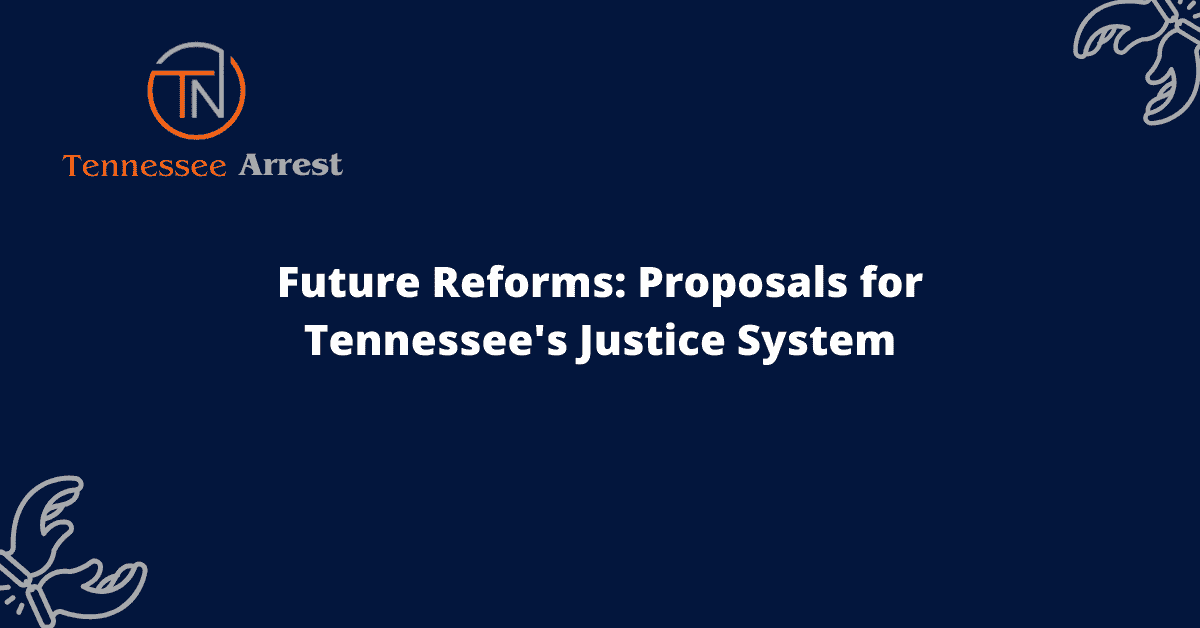Future Reforms: Proposals for Tennessee’s Justice System
As the Tennessee justice system continues to evolve, there is a growing need for comprehensive reforms that address the challenges faced by our state. With a focus on fairness, transparency, and efficiency, several proposals have been put forth to improve our justice system and ensure that it serves the best interests of all Tennesseans.
One key area of concern is the issue of criminal justice reform. Many believe that our current system disproportionately impacts communities of color and low-income individuals. To address this, there have been calls for changes to sentencing laws, the expansion of diversion programs, and increased support for rehabilitation and reentry programs. These reforms aim to create a more equitable and rehabilitative justice system that reduces recidivism rates and promotes successful reintegration into society.
Criminal Justice Reform: Addressing Disproportionate Impact
One of the key concerns in the Tennessee justice system is the issue of criminal justice reform. There is a growing recognition that our current system disproportionately impacts communities of color and low-income individuals. This paragraph will explore the reasons behind this disproportionate impact and the need for reform.
Sentencing Laws: Promoting Fairness and Equity
One area that requires attention is the reform of sentencing laws. Many argue that current laws result in harsher penalties for certain communities, leading to disparities in the justice system. By revisiting sentencing guidelines and ensuring fairness and equity, we can work towards a more just system that treats all individuals equally.
Expanding Diversion Programs: Providing Alternatives to Incarceration
In order to address the disproportionate impact on communities of color and low-income individuals, there is a need to expand diversion programs. These programs provide alternatives to incarceration, focusing on rehabilitation rather than punishment. By diverting individuals away from the criminal justice system and towards supportive programs, we can reduce recidivism rates and promote successful reintegration into society.
Supporting Rehabilitation and Reentry: Breaking the Cycle
Another important aspect of criminal justice reform is the increased support for rehabilitation and reentry programs. It is widely recognized that simply punishing individuals without addressing the underlying issues does not lead to long-term positive outcomes. By providing resources and support for rehabilitation and reentry, we can break the cycle of crime and help individuals successfully reintegrate into society.
Fairness, Transparency, and Efficiency: Fundamental Principles
Throughout the proposed reforms, the fundamental principles of fairness, transparency, and efficiency are prioritized. These principles are crucial in ensuring that the justice system serves the best interests of all Tennesseans. By promoting fairness, we can prevent the disproportionate impact on marginalized communities. By ensuring transparency, we can hold the system accountable and build trust. And through increased efficiency, we can streamline processes and make the system more effective.
Aiming for a More Equitable and Rehabilitative Justice System
Overall, the proposed reforms aim to create a more equitable and rehabilitative justice system in Tennessee. By addressing the challenges faced by our state and focusing on fairness, transparency, and efficiency, we can work towards a system that reduces disparities, promotes rehabilitation, and ultimately serves the best interests of all Tennesseans.
FAQs
What are some proposed future reforms for Tennessee’s justice system?
There have been several proposals for future reforms in Tennessee’s justice system. Some of these include implementing alternative sentencing programs to reduce incarceration rates, increasing funding for rehabilitation and reentry programs, and improving access to mental health and substance abuse treatment for offenders. Additionally, there have been suggestions to enhance community policing efforts and promote restorative justice practices to address the root causes of crime and reduce recidivism rates.
How can alternative sentencing programs benefit Tennessee’s justice system?
Alternative sentencing programs offer non-traditional approaches to punishment, focusing on rehabilitation and addressing the underlying causes of criminal behavior. By providing offenders with opportunities for education, job training, and therapy, these programs aim to reduce recidivism rates and alleviate prison overcrowding. They also have the potential to save taxpayer money by offering cost-effective alternatives to incarceration.
Why is funding for rehabilitation and reentry programs important?
Funding for rehabilitation and reentry programs is crucial in ensuring successful reintegration of offenders into society. These programs provide essential support services, such as job training, counseling, and substance abuse treatment, that reduce the likelihood of reoffending. By investing in these programs, Tennessee can help break the cycle of crime and create safer communities.
How can improving access to mental health and substance abuse treatment benefit the justice system?
Improving access to mental health and substance abuse treatment can have significant impacts on the justice system. Many offenders have underlying mental health or addiction issues that contribute to their criminal behavior. By providing adequate treatment and support, Tennessee can address the root causes of crime and reduce the likelihood of repeat offenses.
What are the potential benefits of enhancing community policing efforts?
Enhancing community policing efforts can foster trust and collaboration between law enforcement agencies and the communities they serve. By promoting positive relationships and proactive problem-solving, community policing can help prevent crime and build safer neighborhoods. It also allows law enforcement to better understand community needs and tailor their approaches to specific areas, resulting in more effective crime prevention strategies.
What is restorative justice and how can it benefit Tennessee’s justice system?
Restorative justice is an approach that focuses on repairing the harm caused by crime through active involvement of all stakeholders. This includes the victim, offender, and the community. By emphasizing accountability, dialogue, and reconciliation, restorative justice aims to address the needs of all parties involved and promote healing and understanding. Implementing restorative justice practices in Tennessee’s justice system can lead to more meaningful outcomes, reduced recidivism, and increased community satisfaction.







